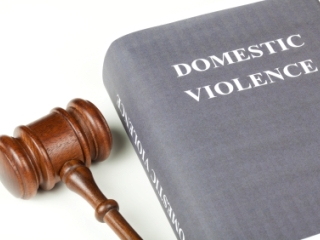Effective January 1, 2016, the California Legislature amended Civil Code Section 1946.7. This code section effectively enables a tenant to break a lease agreement prematurely, without penalty, if the tenant notifies the landlord in writing that he or she is a victim of an act of domestic violence, sexual assault, human trafficking, elder abuse, or abuse of a dependent adult. …
No Assignment, Sublease…or Airbnb?
Airbnb is a new internet hosting platform being used by people worldwide to list their residential property, or a room, to short term guests or occupants in exchange for payment. What many landlords don’t know is that Airbnb does NOT restrict the use of the site to title owners of the property. This could potentially create problems for both landlords …
What Airbnb Hosts Should Know – (Podcast)
I had the privilege of being a guest on ESPN 1700 am Real Talk San Diego with host Lynette Braun on November 30, 2015. We discussed the issues facing Airbnb hosts, particularly when the host lives in a planned development governed by Homeowner Association rules and regulations. The segment of the podcast featuring this content is below. If you have …
HOAs vs Airbnb Hosts
Airbnb has become the new norm for short term and long term vacation rentals throughout the globe. In beach cities like San Diego, short term rentals under 30 days are particularly popular. Clients frequently contact me asking whether they are permitted to rent out a room in their home, or their entire home, to Airbnb guests, when they live in …
Unlawful Detainers in California – What a Landlord Should Know (Podcast)
In order to evict a tenant in California, a Landlord must follow the unlawful detainer process in the Civil Code. This can be time consuming and expensive for the landlord since tenants can essentially live rent free in the property during this time. I had the opportunity to be a radio show guest on ESPN 1700 AM Real Talk San …
The Grass Isn’t Always Greener
On September 4, 2015, Governor Jerry Brown signed Assembly Bill 349 into law which amended Civil Code Section 4735 relating to common interest developments under the Davis-Sterling Common Interest Development Act. This amendment, which became effective on September 4, 2015, and will continue to be the law until further amended, makes it unlawful for any common interest development (or homeowners …
The Reasonable Accommodation Request
The Fair Employment and Housing Act (“FEHA”) is California’s counterpart to the Federal Fair Housing Act, and prevents discrimination in housing accommodations due to race, color, religion, sex, gender, gender identity, gender expression, sexual orientation, marital status, national origin, ancestry, familial status, source of income, disability or genetic information. (California Government Code 12900 et seq). The term “disability” is broadly …
Airbnb – The New Era of Vacation Rentals
Airbnb is the newest online vacation rental service which connects travelers around the globe with hosts of residential properties who desire to rent out their entire property, or a single room in their home, to guests for a limited period of time. The way Airbnb works is that hosts register with the company and create a profile, complete with photos …
One Year Later – RULLCA’s Effect on Existing Limited Liability Companies
California enacted the Revised Uniform Limited Liability Company Act (“RULLCA” or “Act”) on January 1, 2014 which incorporated a few significant changes to the rules governing limited liability companies (“LLCs”). All acts and transactions of existing LLCs that occur on or after January 1, 2014 are controlled by RULLCA, particularly in situations where the LLC’s existing operating agreement is silent. …
Updating Your LLC Operating Agreement
As of January 1, 2014, the California Revised Uniform Limited Liability Company Act (“RULLCA”) [Corp Code 17701.01 et seq] will take effect and automatically apply to all existing and newly formed limited liability companies (“LLCs”). All acts, contracts or transactions of a new or existing LLC that take place or are entered into on or after January 1, 2014 will …







